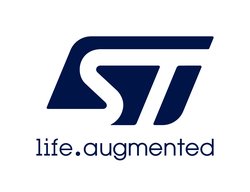NUCLEO-G474RE
STM32 Nucleo-64 development board with STM32G474RE MCU, supports Arduino and ST morpho connectivity
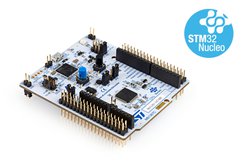
Overview¶
The STM32 Nucleo-64 boards provide an affordable and flexible way for users to try out new concepts and build prototypes by choosing from the various combinations of performance and power consumption features, provided by the STM32 microcontroller.
The Arduino™ Uno V3 connectivity support and the ST morpho headers allow the easy expansion of the functionality of the STM32 Nucleo open development platform with a wide choice of specialized shields.
The STM32 Nucleo-64 board does not require any separate probe as it integrates the ST-LINK debugger/programmer.
Microcontroller features¶
- Core: Arm® 32-bit Cortex®-M4 CPU with FPU, Adaptive real-time accelerator (ART Accelerator) allowing 0-wait-state execution from Flash memory, frequency up to 170 MHz with 213 DMIPS, MPU, DSP instructions
- Operating conditions:
- VDD, VDDA voltage range: 1.71 V to 3.6 V
- Mathematical hardware accelerators
- CORDIC for trigonometric functions acceleration
- FMAC: filter mathematical accelerator
- Memories
- 512 Kbytes of Flash memory with ECC support, two banks read-while-write, proprietary code readout protection (PCROP), securable memory area, 1 Kbyte OTP
- 96 Kbytes of SRAM, with hardware parity check implemented on the first 32 Kbytes
- Routine booster: 32 Kbytes of SRAM on instruction and data bus, with hardware parity check (CCM SRAM)
- External memory interface for static memories FSMC supporting SRAM, PSRAM, NOR and NAND memories
- Quad-SPI memory interface
- Reset and supply management
- Power-on/power-down reset (POR/PDR/BOR)
- Programmable voltage detector (PVD)
- Low-power modes: sleep, stop, standby and shutdown
- VBAT supply for RTC and backup registers
- Clock management
- 4 to 48 MHz crystal oscillator
- 32 kHz oscillator with calibration
- Internal 16 MHz RC with PLL option (± 1%)
- Internal 32 kHz RC oscillator (± 5%)
- Up to 107 fast I/Os
- All mappable on external interrupt vectors
- Several I/Os with 5 V tolerant capability
- Interconnect matrix
- 16-channel DMA controller
- 5 x 12-bit ADCs 0.25 µs, up to 42 channels. Resolution up to 16-bit with hardware oversampling, 0 to 3.6 V conversion range
- 7 x 12-bit DAC channels
- 3 x buffered external channels 1 MSPS
- 4 x unbuffered internal channels 15 MSPS
- 7 x ultra-fast rail-to-rail analog comparators
- 6 x operational amplifiers that can be used in PGA mode, all terminals accessible
- Internal voltage reference buffer (VREFBUF) supporting three output voltages (2.048 V, 2.5 V, 2.95 V)
- 17 timers:
- HRTIM (Hi-Resolution and complex waveform builder): 6 x16-bit counters, 184 ps resolution, 12 PWM
- 2 x 32-bit timer and 2 x 16-bit timers with up to four IC/OC/PWM or pulse counter and quadrature (incremental) encoder input
- 3 x 16-bit 8-channel advanced motor control timers, with up to 8 x PWM channels, dead time generation and emergency stop
- 1 x 16-bit timer with 2 x IC/OCs, one OCN/PWM, dead time generation and emergency stop
- 2 x 16-bit timers with IC/OC/OCN/PWM, dead time generation and emergency stop
- 2 x watchdog timers (independent, window)
- 1 x SysTick timer: 24-bit downcounter
- 2 x 16-bit basic timers
- 1 x low-power timer
- Calendar RTC with alarm, periodic wakeup from stop/standby
- Communication interfaces
- 3 x FDCAN controller supporting flexible data rate
- 4 x I2C Fast mode plus (1 Mbit/s) with 20 mA current sink, SMBus/PMBus, wakeup from stop
- 5 x USART/UARTs (ISO 7816 interface, LIN, IrDA, modem control)
- 1 x LPUART
- 4 x SPIs, 4 to 16 programmable bit frames, 2 x with multiplexed half duplex I2S interface
- 1 x SAI (serial audio interface)
- USB 2.0 full-speed interface with LPM and BCD support
- IRTIM (infrared interface)
- USB Type-C™ /USB power delivery controller (UCPD)
- True random number generator (RNG)
- CRC calculation unit, 96-bit unique ID
- Development support: serial wire debug (SWD), JTAG, Embedded Trace Macrocell™
Nucleo features¶
- Common features
- STM32 microcontroller in LQFP64 package
- 1 user LED shared with ARDUINO®
- 1 user and 1 reset push-buttons
- 32.768 kHz crystal oscillator
- Board connectors:ARDUINO® Uno V3 expansion connectorST morpho extension pin headers for full access to all STM32 I/Os
- Flexible power-supply options: ST-LINK, USB VBUS, or external sources
- On-board ST-LINK debugger/programmer with USB re-enumeration capability: mass storage, Virtual COM port and debug port
- Comprehensive free software libraries and examples available with the STM32Cube MCU Package
- Support of a wide choice of Integrated Development Environments (IDEs) including IAR Embedded Workbench®, MDK-ARM, and STM32CubeIDE
- Board-specific features
- External SMPS to generate Vcore logic supply
- 24 MHz HSE
- Board connectors:External SMPS experimentation dedicated connectorMicro-AB or Mini-AB USB connector for the ST-LINKMIPI® debug connector
Nucleo pinout¶
Pins Legend¶
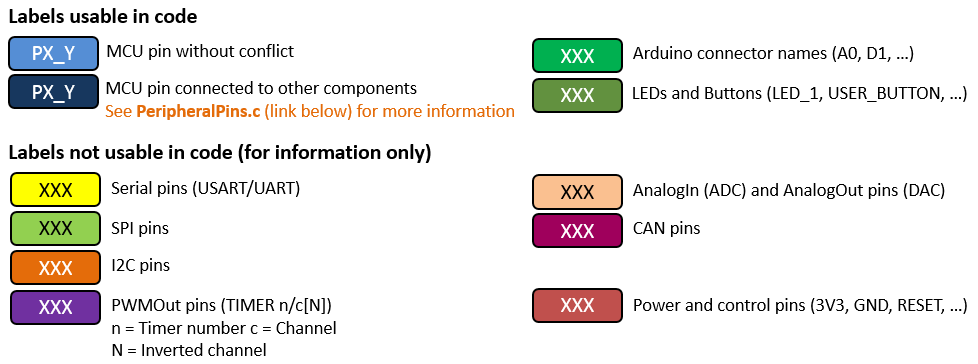
You can find more details on the available pins and labels in the PeripheralPins.c and PinNames.h files.
These files can be found in:
- ARMmbed/mbed-os repository on GitHub (up-to-date version, used with mbed CLI commands)
Arduino-compatible headers¶
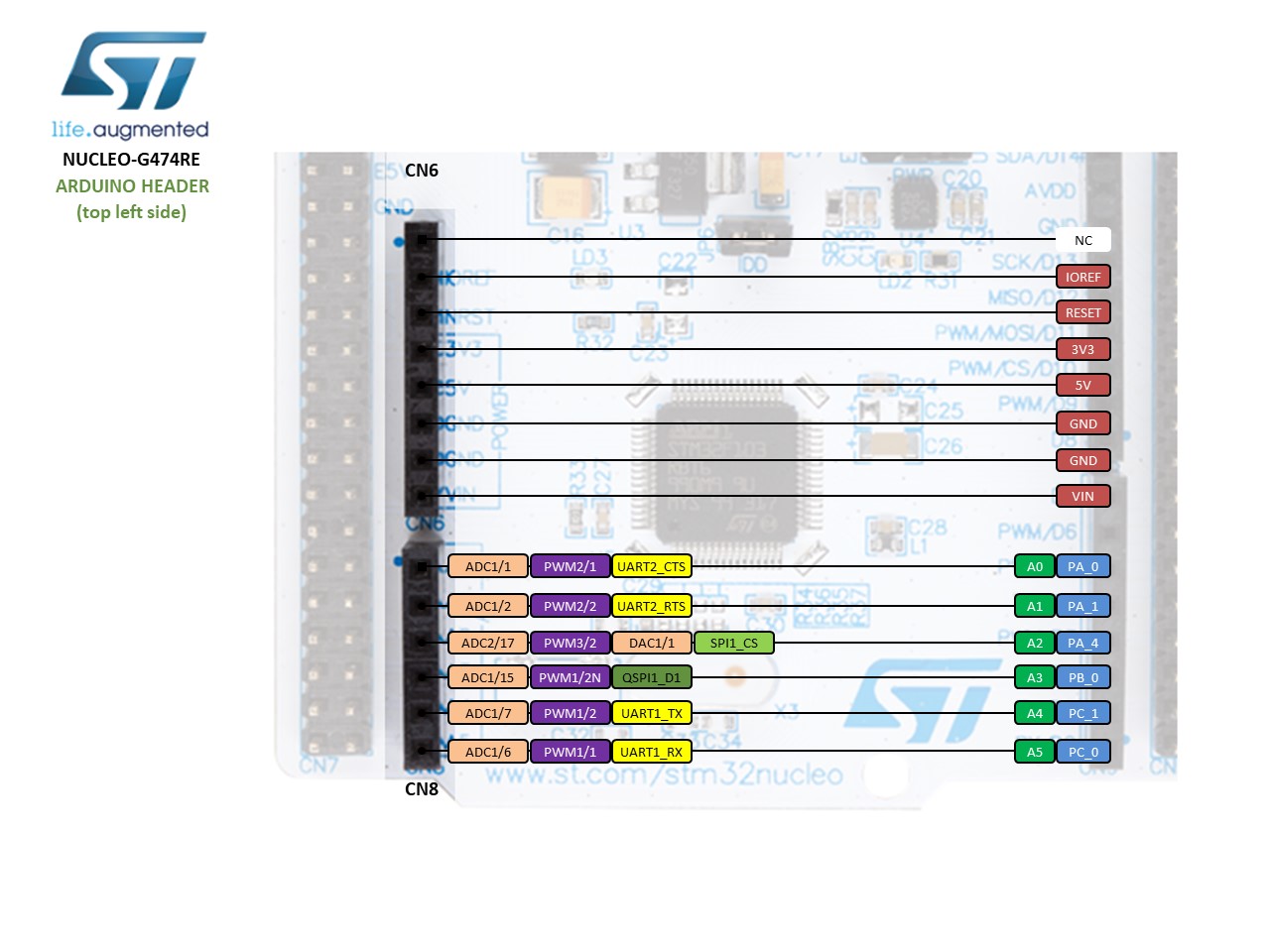
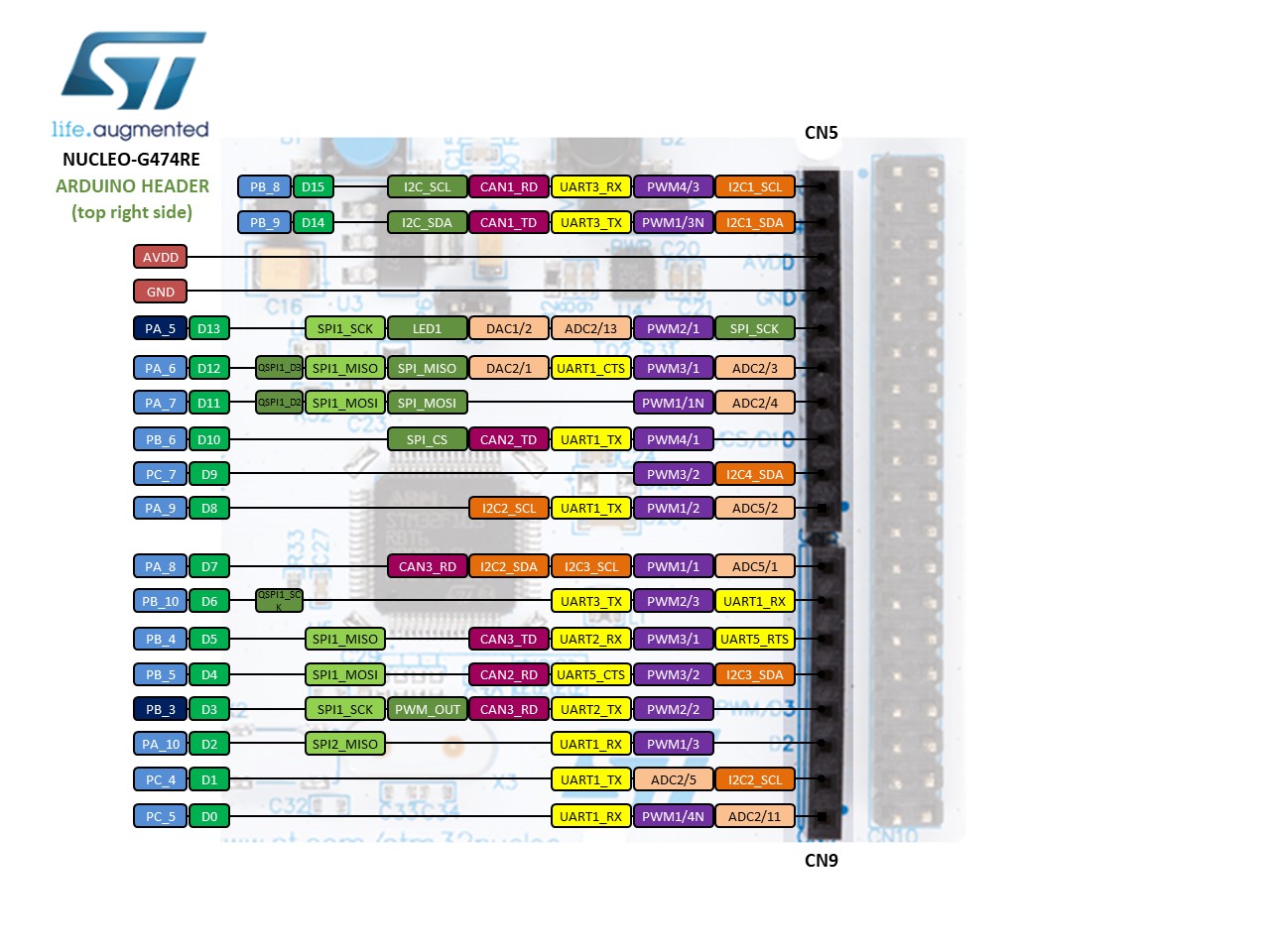
Morpho headers¶
These headers give access to all STM32 pins.
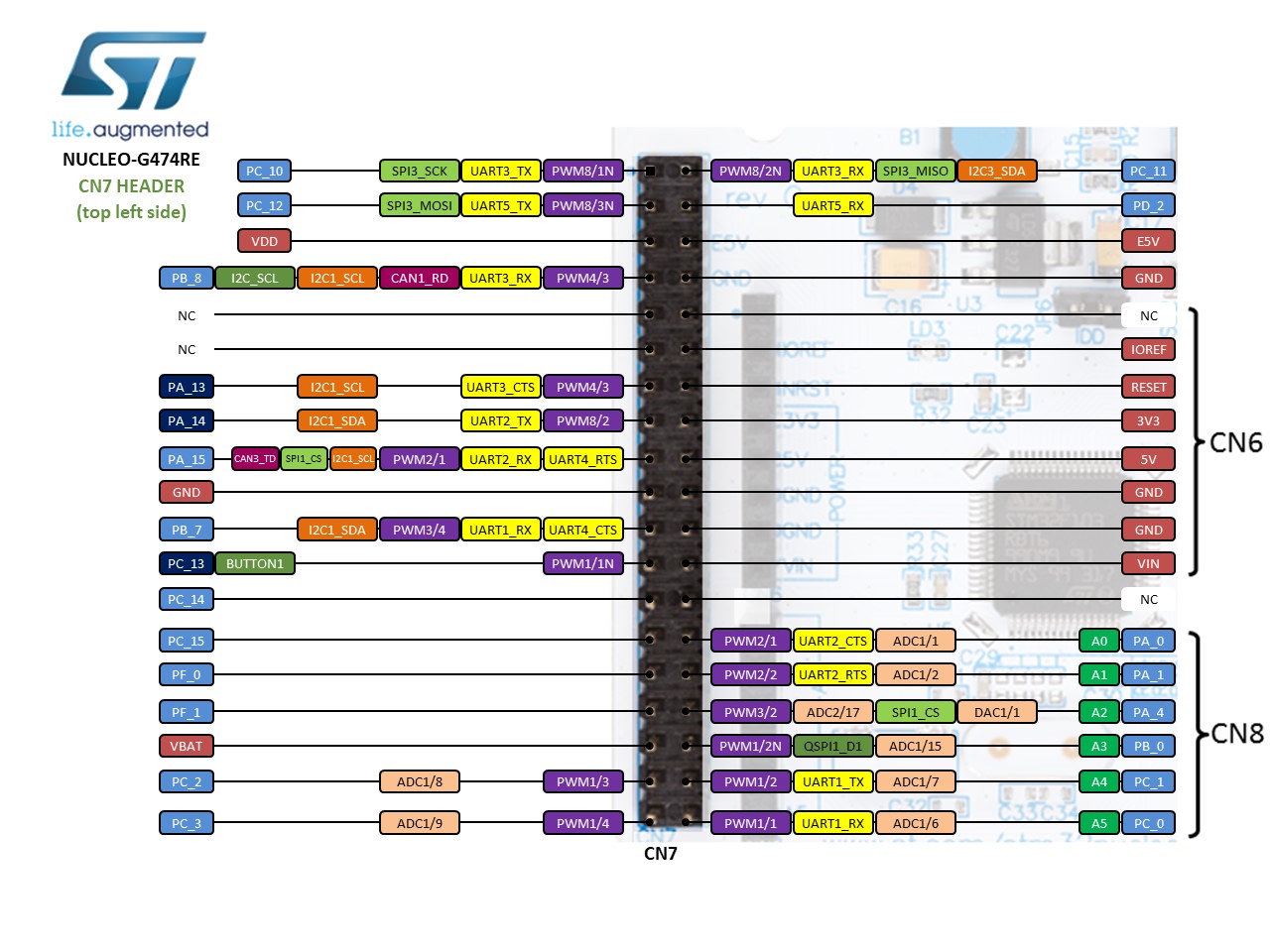
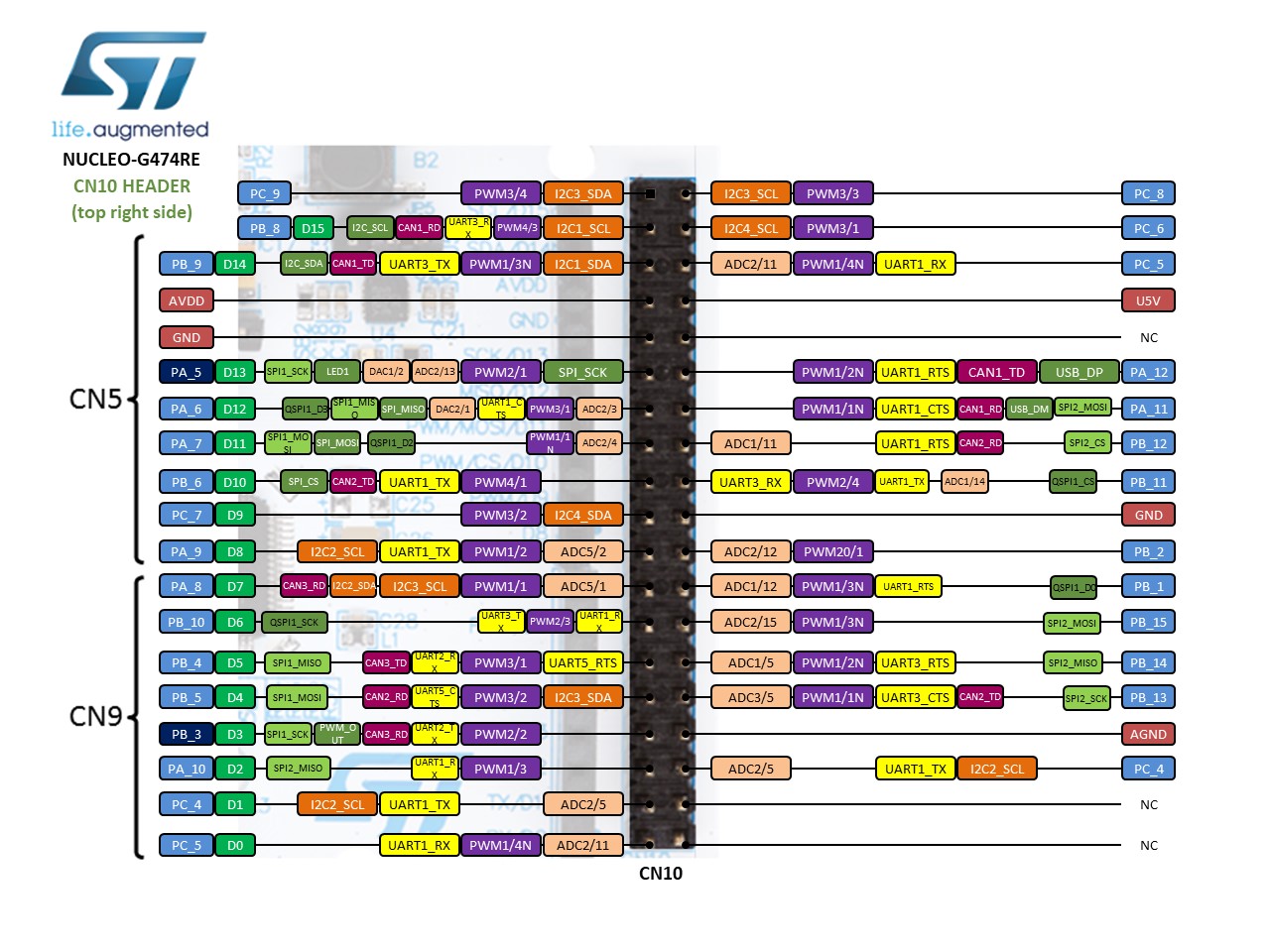
Getting started¶
https://github.com/ARMmbed/mbed-os/tree/master/targets/TARGET_STM
Technical references¶
For more information, please refer to:
Example applications¶
Known limitations¶
The following section describes known limitations of the platform. Note that general issues are tracked into the mbed repository available on GitHub.
Tips and Tricks¶
https://github.com/ARMmbed/mbed-os/tree/master/targets/TARGET_STM
Find more information in ST WIKI pages..
You need to log in to post a discussion
